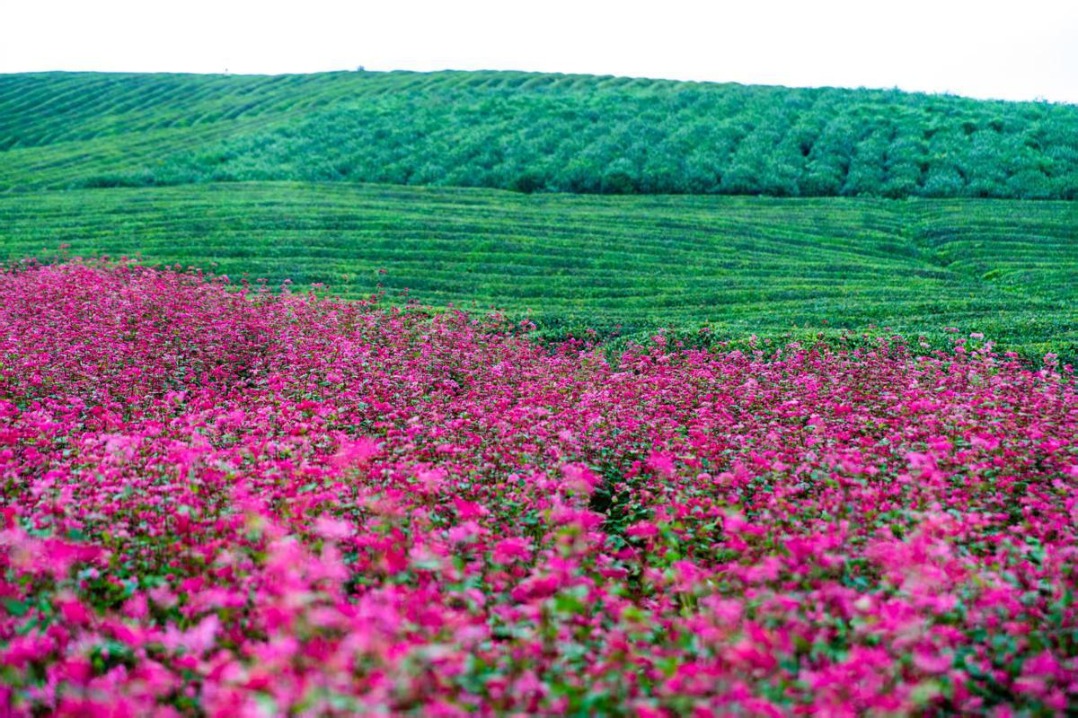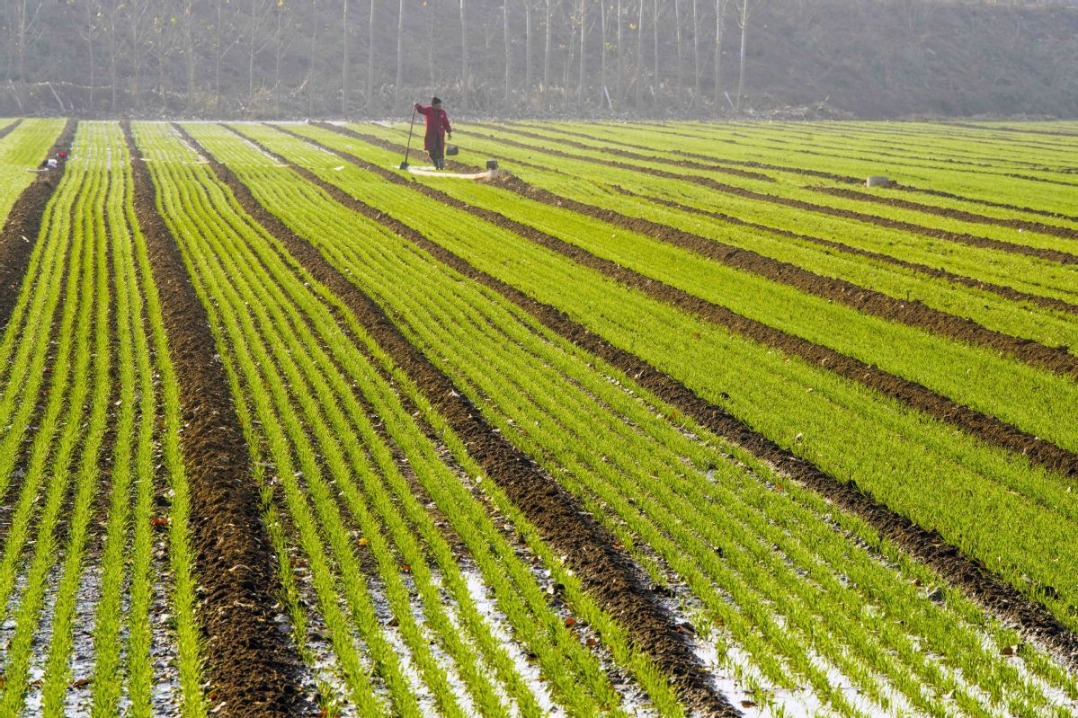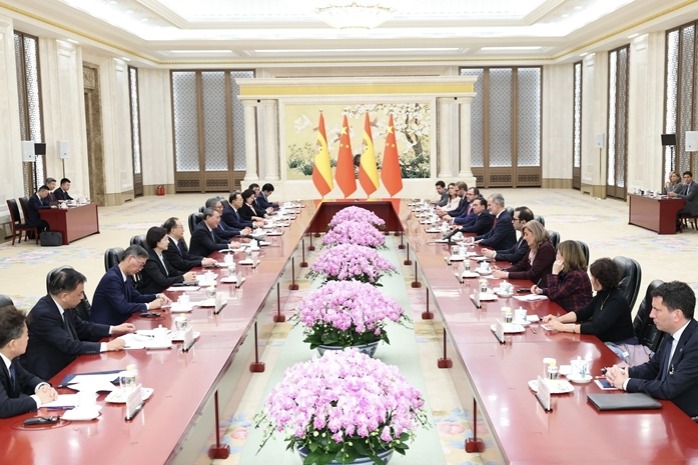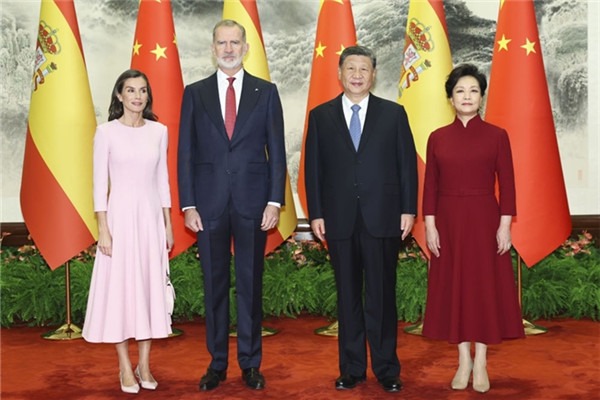Xiconomics: How Xi's green vision sparks hope for a sustainable world


GREEN SEED FOR FUTURE
On Aug. 15, 2005, when Xi, then Party chief of China's southeastern Zhejiang Province, first put forward the vision during an inspection tour to Yucun Village in Anji County. Two years earlier, the village had already made a tough decision to shut down quarries and cement plants to restore the environment, trading short-term income for long-term ecological recovery.
During the trip, Xi conducted a field survey, visited local farmers' homes and held discussions with local officials about economic growth and environmental protection.
Ecological resources were the area's most valuable assets, Xi told local officials, calling the shutdown "a wise move."
Two decades later, as of 2014, Anji -- home to around 604,000 people -- has transformed from a region plagued by environmental degradation into a thriving eco-tourism destination known for its fresh air, clear waters and green mountains.
In 2023, Anji welcomed nearly 31.53 million visitors, generating 44.81 billion yuan (about $6.23 billion) in tourism revenue and topping China's top 100 counties in terms of comprehensive tourism for the sixth consecutive year. The sector now employs over 40,000 residents and accounts for more than 20 percent of farmers' direct income.
Lassana Tounkara, deputy director-general of QTV of Gambia, recently visited Yucun Village. Walking through Yucun's emerald hills, Tounkara was struck by the residents' prosperity and pride. "Xi is a leader with a true vision," he said.
Since that inspection tour, the vision emphasizing harmony between environmental protection and economic development has taken root and inspired real and green changes in China and many parts of the world.
As Xi later put it, "Protect the ecological environment, and it will reward you."
In Meitan County, Guizhou Province, that reward is clearly visible in vast tea plantations covering 2,867 hectares -- the world's largest single tea-growing area -- with neat rows rippling across the hills like emerald waves.
Guizhou now cultivates 7.5 million mu (about 500,000 hectares) of tea, creating a living tapestry that safeguards the land while driving a tea industry worth 97 billion yuan (about $13.49 billion) in 2024.
"The most impressive feature of this concept is that it operates on the principle that economic development does not necessarily mean more pollution," Clifford Cobb, a renowned US scholar on sustainable development, told Xinhua, adding that the green development vision has encouraged numerous Chinese cities and villages to pursue high-quality and sustainable growth through protecting the environment and developing green industries.
"With ingenuity and the right orientation, nations can learn how green mountains can be gold mountains that yield both ecological and economic benefits," Cobb, director of the US Institute for Postmodern Development of China, added.
BOLSTER GREEN DEVELOPMENT
Xi first elaborated on this vision to the world in September 2013 during a visit to Kazakhstan.
"We want to have not only mountains of gold, but also mountains of green. If we must choose between the two, we would rather have the green than the gold. And in any case, green mountains are themselves gold mountains," he said when responding to questions from students of Nazarbayev University. He also pointed out that China will never seek short-term economic growth at the expense of its eco-environment.
Since then, the Chinese leader has frequently presented his idea of green growth on many international occasions, including the G20 summit in Hangzhou in 2016 and the World Economic Forum Virtual Session in 2022.
Over the years, the vision has boosted green development in many countries, where ecological restoration and livelihood improvement are given equal importance.
In Diarra's hometown, the local people are feeding animals with Juncao, a China-originated technology that uses grass instead of timber as a substrate when growing mushrooms. The technology also helps restore natural vegetation in the desert.
"We've learned that protecting the environment and developing animal husbandry can go hand in hand," the herder said. Diarra added that his improved livelihood wouldn't be possible without it.
Juncao is a fast-growing, hardy grass developed in China that helps stabilize soil, retain water, and block desert winds. The technology to grow this grass has now spread to over 100 countries, creating hundreds of thousands of jobs. Xi once vowed to make the Juncao technology a "grass of happiness" that benefits people in developing countries.
"My income is more stable, and I've learned a lot about modern livestock farming," Diarra said, glancing toward the green pastures nearby.
From Southeast Asia to Eastern Europe, more governments are looking to avoid the "develop first, clean up later" trap. In Malaysia, the East Coast Rail Link -- a flagship Belt and Road project -- recently completed excavating all 41 tunnels along its route. Chinese builders used green construction methods to preserve the ecosystem, while still delivering major transport and economic benefits.
This concept combines environmental, social and economic sustainability, said Malaysian scholar Pak Son Low, a former UN official.
It aligns closely with the UN's sustainable development goals and the aspirations of many developing nations, the scholar added.
- Xi meets Thailand's king
- Researchers reveal how global dust regulates carbon cycle, climate change
- China's 3D-printed miniature turbojet engine completes flight test
- Eco-friendly reforms shape Wuzhong's future
- Shenzhou XX crew set to return after space debris delay
- Authorities clarify claims of zhongkao abolishment




































